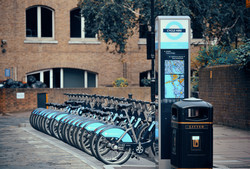Servicizing policies for a truly sustainable EU economy
Servicizing, which involves a transaction where value is provided through a combination of products and services, can go a long way in promoting sustainable development. Generally, the satisfaction of customer needs is achieved by the service or the selling process of the product rather than the product itself. Against this backdrop, the EU-funded SPREE(opens in new window) (Servicizing policy for resource efficient economy) project has worked on enhancing servicizing to bolster a sustainable economy. It achieved this by influencing both the supply and demand sides, or production and consumption, not sacrificing economic growth for social and environmental prosperity or vice versa. Put simply, SPREE focused on researching the conditions that enable servicizing to reach its full potential. The project began by defining servicizing and studying its key components, as well as developing methodologies and reviewing tools for measuring the effects of servicizing. A generic agent-based model and qualitative tool dubbed ABM was used to analyse the impact of servicizing and the proposed policies and potential for decoupling. Research focused on three sectors: water, mobility and agri-food. In this context the project team chose specific servicizing systems within each sector and designed three sector-specific ABMs. The systems are household water management (grey-water recycling and rainwater harvesting services), car and bike sharing, and crop protection management solutions. This was achieved through data collection involving nine case studies of these systems in different countries, providing input for the ABMs and evaluating the sensitivity of policies per country. SPREE produced Servicizing Policy Packages for each of the three sectors. It published important research related to transition dynamics towards servicizing systems, as well as the valuable ABM tool to test policies to support the adoption of servicizing systems. Moreover, the project developed and exploited novel methods to measure and visualise the success in decoupling economic growth and social prosperity from inefficient uses of resources. It highlighted differences within the EU and beyond in relation to employing customer-related approaches, also taking into consideration production standards and available infrastructure. Ultimately the project provided a more comprehensive understanding of servicizing systems overall. These findings will supply future potential servicizing projects with tools for assessing the best policies related to implementation and for simulating potential effects.



